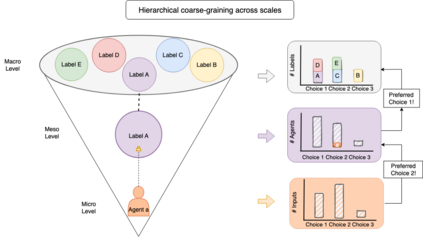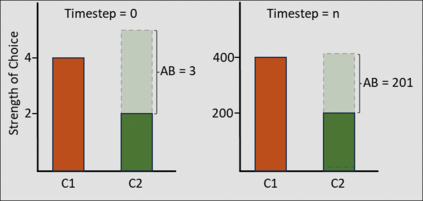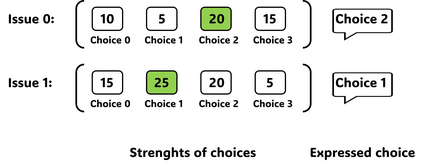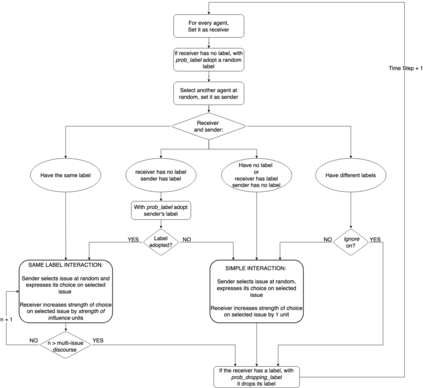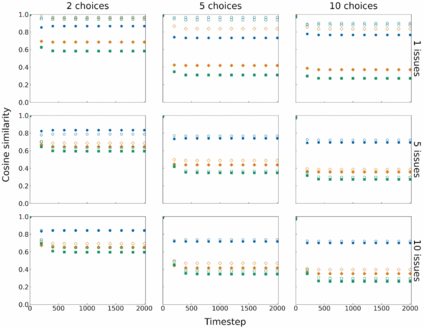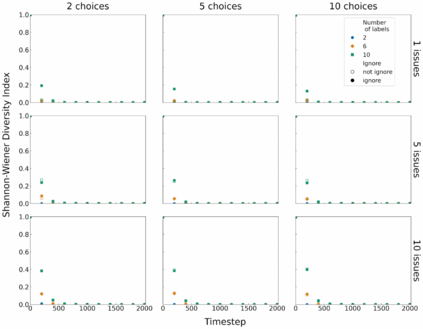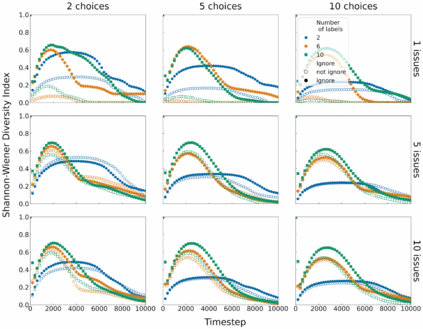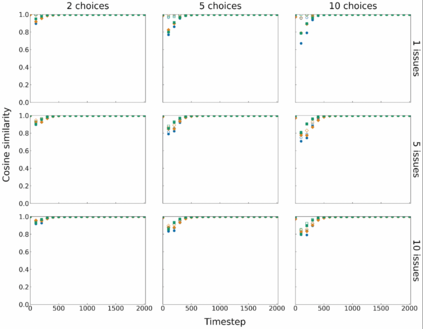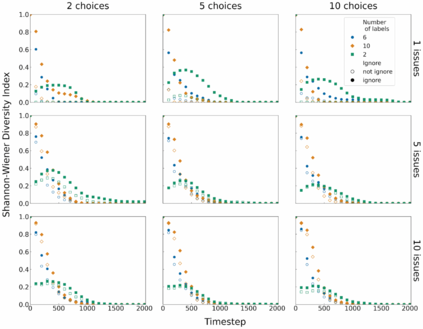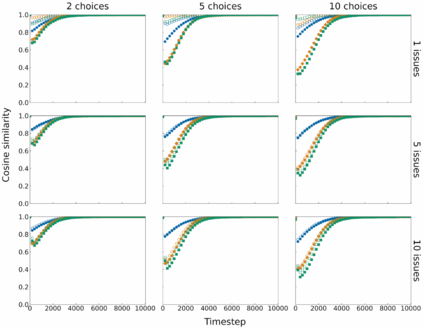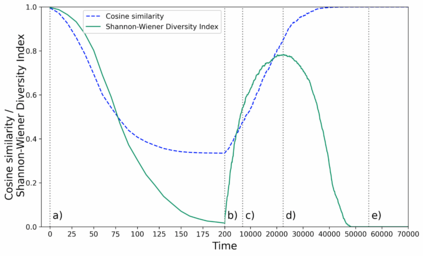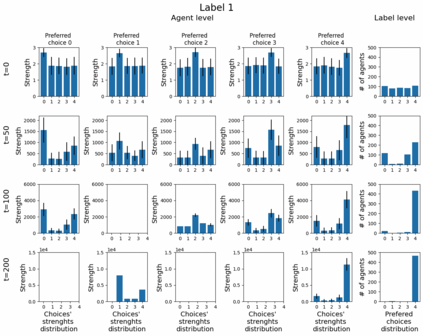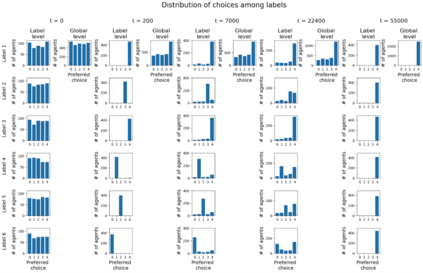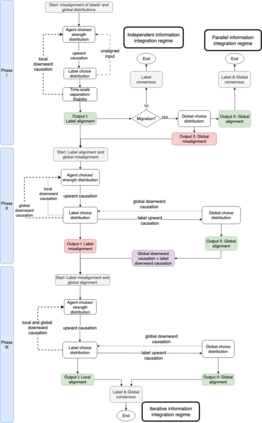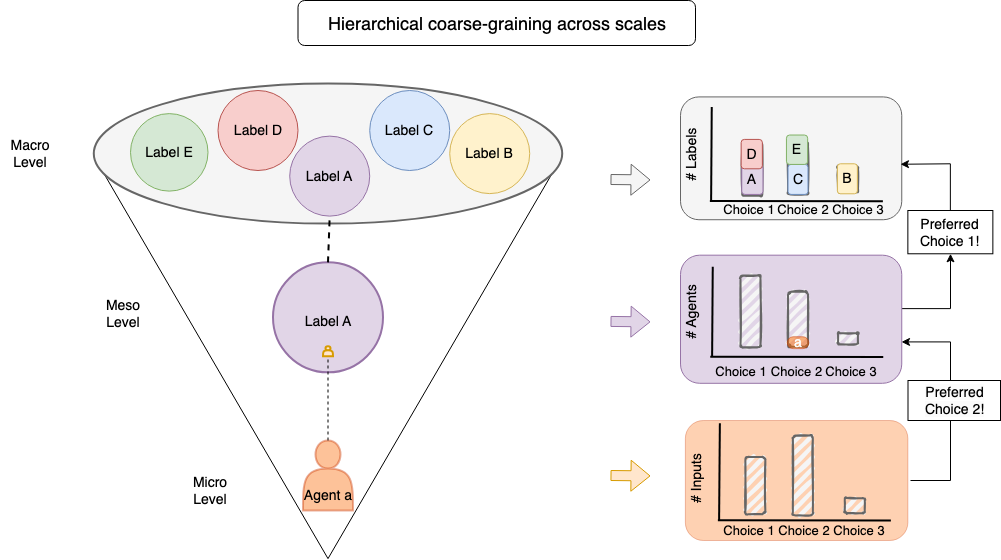The increasing polarization in democratic societies is an emergent outcome of political opinion dynamics. Yet, the fundamental mechanisms behind the formation of political opinions, from individual beliefs to collective consensus, remain unknown. Understanding that a causal mechanism must account for both bottom-up and top-down influences, we conceptualize political opinion dynamics as hierarchical coarse-graining, where microscale opinions integrate into a macro-scale state variable. Using the CODA (Continuous Opinions Discrete Actions) model, we simulate Bayesian opinion updating, social identity-based information integration, and migration between social identity groups to represent higher-level connectivity. This results in coarse-graining across micro, meso, and macro levels. Our findings show that higher-level connectivity shapes information integration, yielding three regimes: independent (disconnected, local convergence), parallel (fast, global convergence), and iterative (slow, stepwise convergence). In the iterative regime, low connectivity fosters transient diversity, indicating an informed consensus. In all regimes, time-scale separation leads to downward causation, where agents converge on the aggregate majority choice, driving consensus. Critically, any degree of coherent higher-level information integration can overcome misalignment via global downward causation. The results highlight how emergent properties of the causal mechanism, such as downward causation, are essential for consensus and may inform more precise investigations into polarized political discourse.
翻译:暂无翻译

